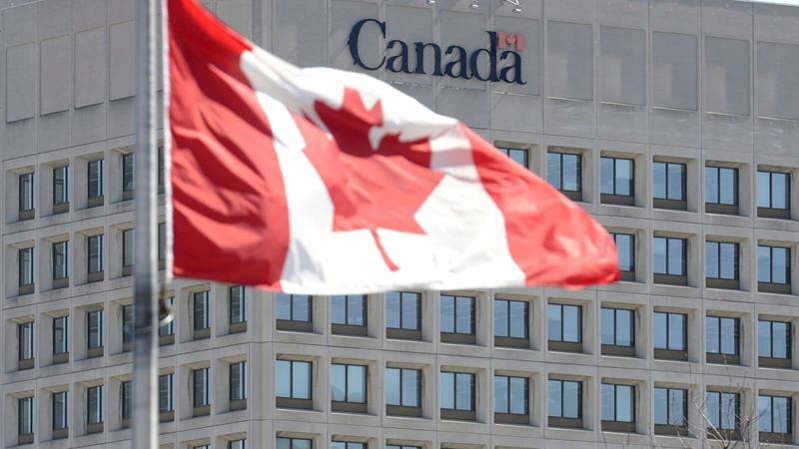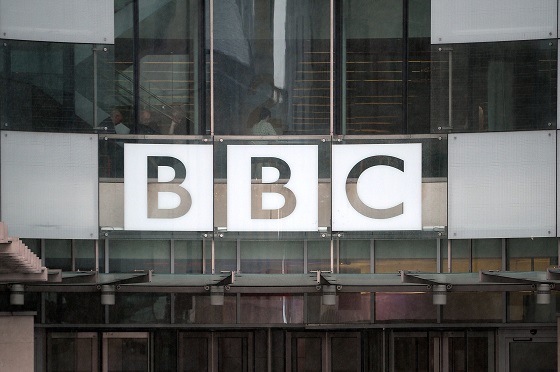Business
In search for savings, Carney government should shrink—not just cap—the federal bureaucracy

From the Fraser Institute
By Jake Fuss and Grady Munro
The Carney government recently initiated a spending review intended to find “ambitious” internal savings before the 2025 fall budget. As promised in the government’s election platform, this review will likely involve capping the size of the federal public service to find savings. However, rather than simply capping it, the government should shrink the size of the bureaucracy while also revisiting compensation levels.
Specifically, the Carney government’s goal is to find a total of 15 per cent in savings among planned program spending—which in this context refers to less than half of total federal spending—over the next three years. This review has been initiated to offset part of the massive fiscal impact of recent policy announcements (notably, increasing defence spending), which could push this year’s deficit, according to one estimate, as high as $92.2 billion.
As part of the review, the Carney government will need to find savings from the federal public service. At the end of its term the Trudeau government faced considerable pressure to rein in the massive growth in the size of the federal public service that it had overseen, and again, in response to this pressure, the Carney government committed to capping the size of the federal public service in its election platform.
While capping the federal public service would be a step in the right direction, it does not go nearly far enough.
Instead, the federal government should shrink, not cap, the size of the bureaucracy. From 2015 to 2024, the federal government hired 110,738 new bureaucrats—a 43.1 per cent increase during the Trudeau government’s tenure. That’s nearly triple the rate of population growth (15.2 per cent) over the same period. And while the federal government did trim a little over 9,800 jobs in 2025, that represents quite modest improvement compared to the overall growth observed over the last decade.
Research shows that government workers enjoy wages that are approximately 5.5 per cent higher than private sector workers who perform similar work (after controlling for factors like sex, age, education, union status, etc.). Moreover, government workers enjoy more generous pensions and other non-wage benefits than comparable workers in the private sector. As such, there is a considerable fiscal burden attached to this explosion in the size of the federal bureaucracy.
Specifically, using data from the Parliamentary Budgetary Officer (PBO), we see that overall federal spending on employee compensation went from $39.1 billion in the 2014/15 fiscal year to $65.3 billion in 2023/24 (the latest year of available data). Adjusting for the effects of inflation, that’s a 33.3 per cent increase in how much the government spends on compensation. And remember, it’s ultimately Canadian taxpayers who foot the bill for a larger government.
Now, it would be one thing if Canadians were much better off due to this expansion in the size of the government, but it’s not clear that’s the case. For instance, from the start of 2015 to the start of 2025, gross domestic product (GDP) per person in Canada—a broad measure of individual living standards—grew an anemic 2.3 per cent (adjusting for inflation). In comparison, inflation-adjusted GDP per person in the United States grew by 15.6 per cent over that same period. Moreover, recent polling data shows nearly half (44 per cent) of Canadians feel they receive poor or very poor value from government services in exchange for their tax dollars.
The Carney government will need to target the federal public service in its search for “ambitious” savings. This is the right place to look, but to be ambitious the government should shrink—not just cap—the size of the bureaucracy while also revisiting its compensation.
Business
Liberals refuse to disclose the amount of taxpayer dollars headed to LGBT projects in foreign countries

From LifeSiteNews
The Liberal government of Prime Minister Mark Carney will not openly disclose how much money from its foreign-aid budget is going toward overseas “gender identity” and “decolonization” projects.
According to the government, there are “concerns” that disclosing the amount of funds could endanger certain LGBT organizations that get money from it.
On November 3, Global Affairs Canada, in response to a question on the order paper from a Conservative MP, said that the funding amounts could not be made public due to claimed “security concerns” and “confidentiality requirements.”
“These are the most common reasons projects are considered sensitive: the organization or individuals might be in danger if it becomes known that they are receiving funds from a foreign government; (or) implementing a project related to sensitive topics such as two-spirit, lesbian, gay, bisexual, transgender, queer, intersex and additional sexually and gender-diverse people rights, human trafficking, early/forced marriage, (and) human rights defenders,” Global Affairs noted.
Continuing, Global Affairs said that there is a possible “danger” to partner organizations that could be “forced to close” or even “arrested” due to “harassment from the local population or government.”
As reported by LifeSiteNews, Carney’s budget will include millions in taxpayer money for “SLGBTQI+ communities,” gender equality, and “pride” safety.
Canada’s 2025 federal budget is allotting some $54.6 million to LGBT groups in a move criticized by Campaign Life Coalition as prioritizing activist agendas over struggling families’ basic needs.
Canadian taxpayers are already dealing with high inflation and high taxes due in part to the Liberal government overspending and excessive money printing, and even admitting that giving money to Ukraine comes at the “taxpayers’” expense.
As recently reported by LifeSiteNews, Bank of Canada Governor Tiff Macklem gave a grim assessment of the state of the economy, essentially telling Canadians that they should accept a “lower” standard of living.
Business
Carney’s Floor-Crossing Campaign. A Media-Staged Bid for Majority Rule That Erodes Democracy While Beijing Hovers

In a majority government, an unprecedented and risky, course-altering national policy — deepening ties with Beijing while loosening ties with Washington — is considerably easier to execute.
On budget day, Ottawa’s reporters were sequestered in the traditional lock-up, combing through hundreds of pages, when Politico detonated a perfectly timed scoop: Conservative MP Chris d’Entremont was weighing a jump to Mark Carney’s Liberals. Within hours, he crossed, moving the government to within two seats of a majority — one that would guarantee Carney’s hold on power until 2029 — without Canadians casting a single ballot.
This was no ordinary budget day. By orchestrating a floor-crossing during a media lock-up, the Liberals blurred scrutiny of a historic spending plan while inching toward a de facto majority. That sequence raises deeper concerns about media–political entanglements and the democratic legitimacy of building a majority outside the polls.
Toronto Sun columnist Brian Lilley, in a deeply reported Substack post yesterday, captured months of palace intrigue. A well-sourced politics reporter with lines into Conservatives and Liberals alike, he lays out the knowns, the known unknowns, and the plausible backroom plays. Carney’s courting began right after the April 28 election that left him sitting at 169 seats, Lilley writes. For weeks, the Liberals probed for weak ribs in the Conservative caucus; and on November 4, they landed one.
“One thing is clear, the Liberals have been trying to poach a lot of Conservative MPs and doing everything they can to convince them to cross the floor,” he concluded.
Why? According to Lilley, Carney has been “governing for the most part like he has a majority, and he clearly doesn’t want to engage in the horse trading that a minority Parliament requires, so poaching MPs can solve his problem.”
The fallout was already clear to see last week. And it doesn’t look good for Canadian democracy or Canadian media, which receives significant government subsidies. Even at surface level, the press corps was visibly distracted from its first duty to citizens: scrutinizing a historically large budget packed with nation-building promises and unanswered questions about feasibility. Veteran reporters have already acknowledged this.
In another piece this weekend, Catherine Tunney, a solid CBC reporter, explained how Pierre Poilievre was undermined this way: “For the Opposition, budget week is a communications gift. It’s an easy way for the party to call out government spending,” she wrote. “For a leader who has built his brand on calling out Liberal spending, tabling a budget with a $78-billion deficit is the political equivalent of pitching a strike straight down the middle to Dodger slugger Shohei Ohtani.”
But instead, “of taking a victory lap around the bases, [Poilievre] ended the week facing questions about his leadership — after losing one MP to his rivals and another resigning from federal politics altogether.”
The messaging continued yesterday, with another CBC report amplifying the Liberals’ narrative that Conservative leaders were actively bullying MPs not to cross.
CBC had to issue a correction. After publishing d’Entremont’s account that senior Conservatives “pushed” his assistant, CBC later updated the story to clarify that Andrew Scheer and Chris Warkentin “pushed open the door,” and the aide stepped aside — a meaningful distinction.
Stepping back from the noise, there is a deeper problem.
Making honeyed promises to floor-crossers is legal in Canada’s democracy. But Canada is in a mounting trade war involving China and the United States, in an increasingly dangerous, cutthroat geopolitical environment. Already, the prime minister is pledging renewed engagement with Beijing as a strategic partner.
Doing so in a minority Parliament means facing tough accountability questions — and bruising inquiries in ethics committee hearings. In a majority government, an unprecedented and risky, course-altering national policy — deepening ties with Beijing while loosening ties with Washington — is considerably easier to execute.
And what kind of partner is Carney choosing? Yesterday, Japan lodged formal complaints after a senior Chinese diplomat took to social media and threatened to “cut [the] dirty neck” of Japan’s new leader over her stance on Taiwan. On Friday, Prime Minister Sanae Takaichi had said a Chinese attack on Taiwan could constitute “a survival-threatening situation” for Japan, potentially requiring the use of force.
“We have no choice but cut off that dirty neck that has been lunged at us without hesitation. Are you ready?” Chinese Consul General Xue Jian said in a message posted on X, which was later deleted.
This is the government Carney is rapidly sliding closer to. The same regime that jailed Canadians Michael Kovrig and Michael Spavor in the Meng Wanzhou affair — and a government that, Canadian intelligence has warned, attempts to shape media narratives in Canada.
As The Bureau reported in 2023, Canada’s own Privy Council Office warned in a January 2022 Special Report that Beijing’s United Front Work Department targets Canadian institutions.
In a section alleging Beijing “manipulates traditional media” in Canada, the report details press conferences held in January 2019 by former Toronto-area Liberal cabinet minister John McCallum, to argue that Canada’s detention of Huawei executive Meng Wanzhou was illegal. McCallum, then ambassador to China, was forced to resign after the Conservative opposition condemned his comments.
In the fallout, according to the Privy Council Office report, Canadian intelligence uncovered that several Chinese diplomats in Canada were voicing support for McCallum. One Chinese consulate official “sent information” to an unidentified Canadian media reporter indicating Chinese Canadians have favourable impressions of McCallum, the report says.
Now back to Ottawa media’s role. Why and how did Politico get the floor-crossing scoop during the budget lock-up — and then, that same evening, co-host a post-budget reception branded “Prudence & Prosecco” at the Métropolitain Brasserie, where Finance Minister François-Philippe Champagne and well-placed Liberals mingled with reporters? Every veteran reporter knows political parties try to influence the press — they’re called spin doctors for a reason. But darker forces can ride the same channels. In Brussels, for example, European security services are investigating a former Politico reporter over alleged ties to Chinese intelligence — still unproven, but a cautionary tale about the murkiness of media–political ecosystems.
Lilley also documents how coverage of another rumoured floor-crosser, Matt Jeneroux, became part of last week’s fog machine. The Toronto Star reported a private meeting between Jeneroux and Carney involving senior Liberal strategists Braden Caley and Tom Pitfield; Jeneroux issued categorical denials to senior Conservatives. “Someone is lying,” Lilley writes — and whether or not a second crossing was imminent, the destabilization served its purpose. Other names floated, such as Michael Chong, were so implausible as to raise suspicion of calculated disinformation.
“I didn’t buy Chong either, but Liberals kept pushing that narrative,” Lilley wrote. “As someone who knows Michael a bit, I simply didn’t believe it, didn’t even reach out to ask — he later called me to confirm the rumours were bogus.”
It is geopolitically notable that Michael Chong — sanctioned by Beijing and repeatedly targeted in PRC pressure campaigns, including a Chinese intelligence operation targeting Chong and his family that Justin Trudeau’s government failed to notify him about — saw his name tossed into this mess. Who benefits from saddling Chong with corrosive rumours?
It would seem that not only the Liberals benefit, but so do Carney’s new “strategic partners” in Beijing. None of this proves any newsroom has wittingly acted in bad faith, nor is there any evidence that Beijing’s shadow looms in the Liberals’ media playbook. But it does suggest how a coordinated political operation can be abetted by domestic media distraction.
Now, consider darker possibilities that could be in play. Not necessarily last week, but in any number of major events and stories shaping relations among Canada, China, and the United States.
The bipartisan NSICOP 2024 Review into allegations of Chinese election interference in Canada’s last two federal elections found that “during the period under review, the intelligence community observed states manipulating traditional media to disseminate propaganda in what otherwise appeared to be independent news publications.”
It added: “Foreign states also spread disinformation to promote their agendas and consequently challenge Canadian interests, which posed the greatest cyber-threat activity to voters during the time under review.”
The report continued: “These tactics attempt to influence public discourse and policymakers’ choices, compromise the reputations of politicians, delegitimize democracy, or exacerbate existing frictions in society.”
According to the intelligence community, “the PRC was the most capable actor in this context, interfering with Canadian media content via direct engagement with Canadian media executives and journalists.”
So what do we have here? Carney’s Liberals have a natural interest in destabilizing the Conservatives and sending Pierre Poilievre — a prosecutorial-style politician who excels at exposing his opponents’ weaknesses — into early political retirement. Arguably, they have a well-founded interest in dividing the Conservative Party itself.
But using the media to float names of opposition MPs who never intended to cross is disinformation, plain and simple. And when that name is Michael Chong — long targeted by Beijing — the stakes rise. If Carney is tilting toward a “strategic partnership” with Beijing, and if that delays the Foreign Influence Transparency Registry, as critics such as Dr. Charles Burton warn, then the tactics on display have moved from questionable to unacceptable — and risk entangling the interests of the Liberal Party of Canada with those of the Chinese Communist Party in Beijing.
The Bureau is a reader-supported publication. To receive new posts and support my work, consider becoming a free or paid subscriber.
-

 Agriculture18 hours ago
Agriculture18 hours agoBovaer Backlash Update: Danish Farmers Get Green Light to Opt Out as UK Arla Trial Abruptly Ends!
-

 Business2 days ago
Business2 days agoCBC cashes in on Carney as the news industry playing field tilts further in its favour, crippling the competition
-

 Business23 hours ago
Business23 hours agoCarney’s Floor-Crossing Campaign. A Media-Staged Bid for Majority Rule That Erodes Democracy While Beijing Hovers
-

 Daily Caller1 day ago
Daily Caller1 day agoMcKinsey outlook for 2025 sharply adjusts prior projections, predicting fossil fuels will dominate well after 2050
-

 Agriculture2 days ago
Agriculture2 days agoFarmers Take The Hit While Biofuel Companies Cash In
-

 Business1 day ago
Business1 day agoTrump: Americans to receive $2,000 each from tariff revenue
-

 armed forces19 hours ago
armed forces19 hours agoIt’s time for Canada to remember, the heroes of Kapyong
-

 International1 day ago
International1 day agoBBC boss quits amid scandal over edited Trump footage


